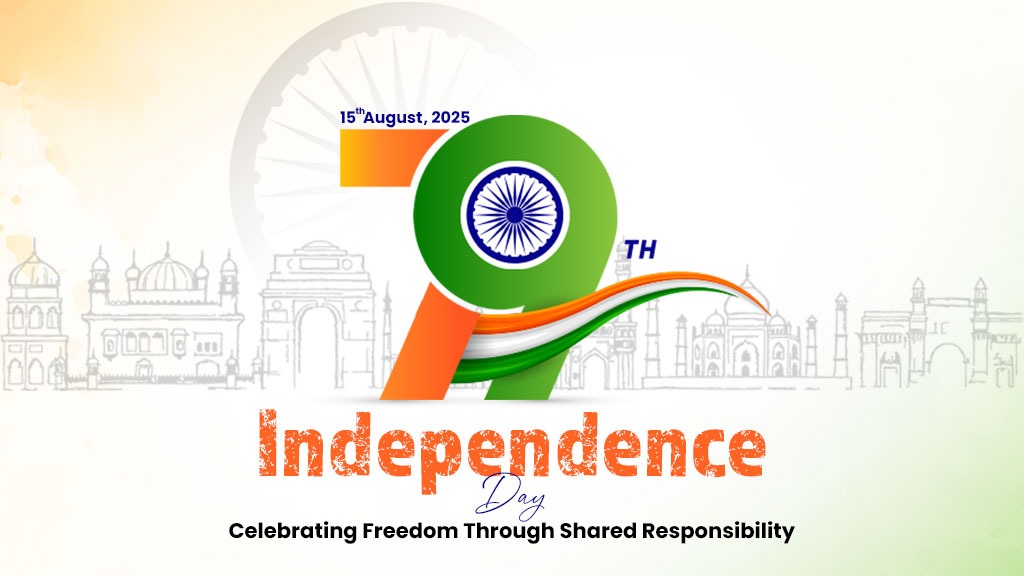As India celebrates its 79th Independence Day on August 15, 2025, it is time to remember not only what freedom achieved in 1947 but also what it demands today. While India gained independence on August 15, 1947, the formal independence came through the Indian Independence Act of 1947, enabling self‑rule starting at midnight between August 14‑15 1947 under British law. This is our 79th official celebration, counting 1947 as the first observance, as many educational forums emphasize.
Freedom is more than ceremonial, it lives in equality of access, safety, expression, and opportunity. Freedom flourishes when every child can attend school, every woman can walk safely at night and every citizen can express opinion without fear. It thrives through inclusion and justice.
India’s milestone Azadi Ka Amrit Mahotsav commemorated 75 years of independence through cultural exhibitions, heritage walks, citizen dialogues and public art invoking stories of struggle and resilience. Though the formal program concluded in 2023, its spirit continues in community‑based events across regions.
State governments are preparing celebrations to incite both pride and reflection. In Uttar Pradesh, colleges will implement the Har Ghar Tiranga campaign, encouraging students to create tricolour artworks, rangoli designs and rakhi‑making activities in early August, culminating in flag‑hoisting events at campuses before Independence Day itself. Officials are reviewing preparations for cultural performances, exhibitions and live broadcasts on Doordarshan and All India Radio connecting communities across the state.
Organizations like Festivals For Joy believe this day must extend beyond flags and music, it must engage citizens in tangible action. Freedom is enriched when people actively uphold democratic values-listening to marginalized voices, standing against inequality, and investing in public welfare.
Historical context deepens our connection to today. The Purna Swaraj declaration of 1930, adopted on January 26, served as the first call for complete independence from British rule, laying the path to self‑rule and republican governance in 1950.
As we celebrate August 15 2025, consider the everyday patriots, the sanitation worker rising before dawn, the teacher inspiring critical thinking, the artist preserving folk music, the citizen journalist giving voice to local problems. These are the ones who sustain independence through quiet service.
You can participate meaningfully: gather oral histories of unsung local heroes, tutor underprivileged youth, host heritage preservation projects, plant trees in heat‑affected neighbourhoods, and engage in village storytelling circles.
In line with increasing citizen participation, Prime Minister’s Office invited public suggestions for the theme of his Independence Day speech, creating a space for citizens to influence national discourse and inclusion in governance narratives.
True celebration balances pride with purpose. Reflect on questions like: what does freedom mean to me in 2025? How can I help someone else feel safe, heard, and included? What small action can uphold the dignity and rights of others?
From the speeches at Red Fort to community flag‑hoisting ceremonies, let every presentation be rooted in empathy, historical awareness and forward‑looking responsibility. Remember the National Pledge, composed in Telugu in 1962 by P. V. Subba Rao, that is still recited in schools across India, a pledge to uphold unity, integrity and diversity in public gatherings.
Independence Day is a living legacy. It shines when the values of peace, justice, and unity are woven into everyday actions, of mentorship, inclusion, storytelling, and civic engagement.
On August 15 2025, may we honour freedom not merely by raising the flag, but by lifting each other. Happy Independence Day. May our actions reflect the dignity and spirit of the freedom we cherish.

